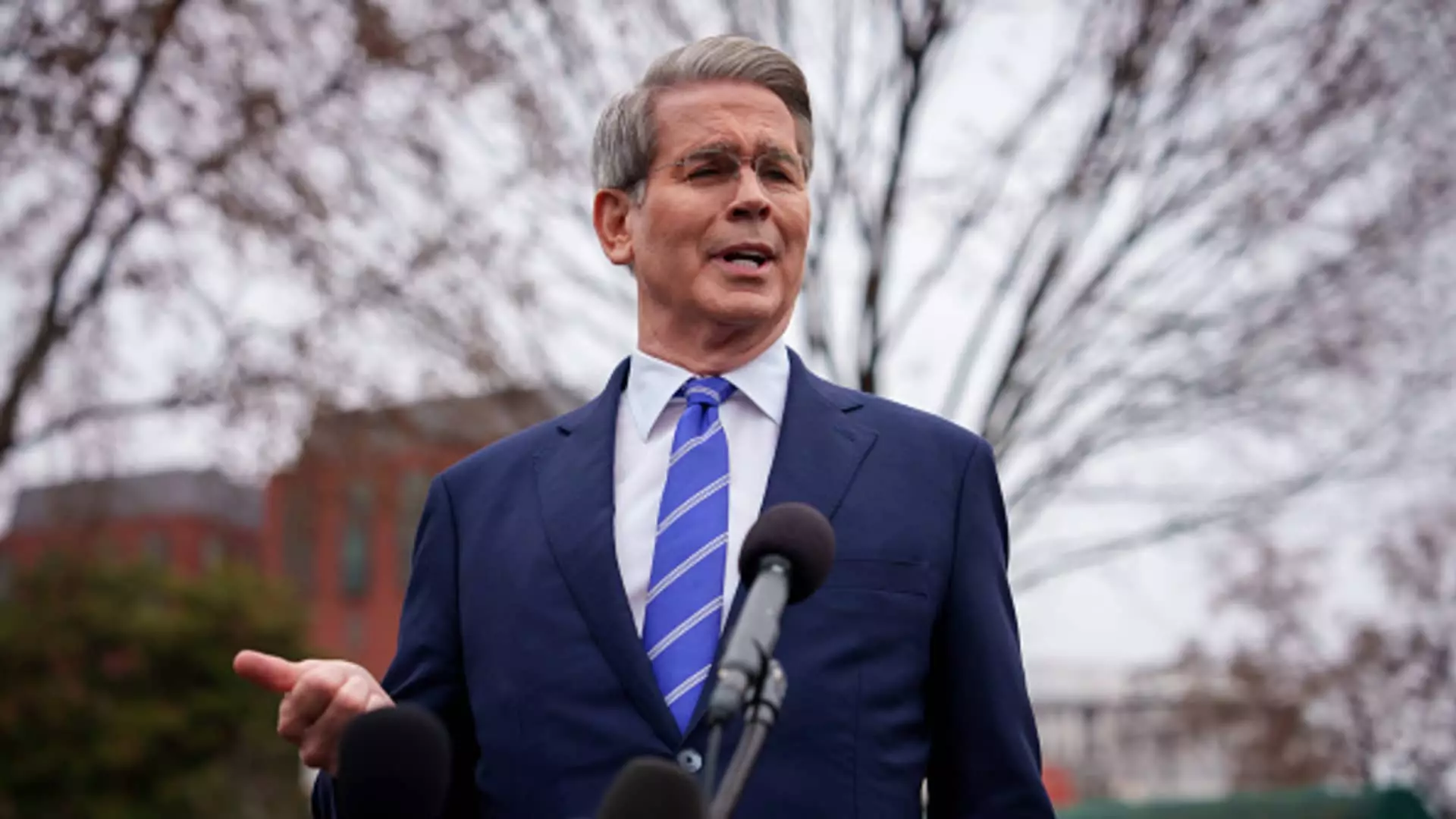The financial world is no stranger to volatility, yet the recent plunge in technology stock prices signals something more profound. Treasury Secretary Scott Bessent pointed to the sudden emergence of Chinese AI startup DeepSeek as the primary culprit behind the sell-off, asserting it is a “Mag 7 problem,” referring to the so-called Magnificent 7 tech companies including the likes of Apple, Google, and Microsoft. DeepSeek’s only provocation? Its release of advanced, cost-effective language models. This unforeseen competitor has ignited a broader discussion about the sustainability of investments made by established tech giants in the AI space. One might ponder: are these tech behemoths on the brink of being outmatched by their less-established counterparts?
The Fragility of Market Sentiment
The current state of the market reveals a precarious dance between innovation and investor confidence. As the Nasdaq Composite faces a 13% correction from its recent high, it’s clear that a fragile atmosphere is emerging. Bessent’s claim that tariffs enacted by the Trump administration aren’t the major driving force behind this sell-off can be challenged. True, the DeepSeek announcement might have been the match that lit the fuse, but what about the underlying anxieties regarding inflation and tariffs? Fear grows quickly in financial circles, and that fear is often amplified by governmental policies that dictate market conditions.
The Policy Puzzle: Tariffs and Their Fallout
While Bessent wishes to downplay the role of tariffs, the economic repercussions of President Trump’s aggressive “reciprocal tariff” policy cannot be ignored. Slapping hefty tariffs on imports, sometimes exceeding 10%, risks isolating the U.S. economy in an increasingly interdependent world. This creates an environment where investors wonder not only about the profitability of tech stocks but also about the economic stability that sustains them. As the S&P 500 experiences sharp downturns, the fear of slipping back into correction territory becomes palpable. The recent 1,100-point drop in the Dow is a stark reminder that the market is anything but bulletproof.
Navigating the Future: The Role of Innovation
The question remains: can established tech companies adapt swiftly to the rapidly evolving landscape? Bessent believes in the restorative power of sound economic policies. However, history suggests that to thrive, businesses must innovate continuously, rather than merely react to outside pressures. The stakes are high; if prominent tech firms continue to “play it safe” while competitors like DeepSeek push the envelope, they risk losing market dominance. Investment should not just focus on capital but also on the agile mindset needed to compete in a global arena.
The Bigger Picture: Investors’ Dilemma
Investors now face a daunting dilemma: do they hold on to tech stocks in the hopes of recovery, or begin reallocating capital to sturdier sectors? This moment of uncertainty invites critical self-examination and strategic decision-making. The prevailing climate of fear, coupled with tariff fears, makes it easy for investors to panic, potentially leading to irrational decisions driven by short-term sentiment rather than long-term vision. The market is a living entity, and its trajectory must be understood holistically rather than through a fragmented lens of isolated events.
While Bessent attempts to frame the narrative around technology’s challenges as surmountable, the entangled ramifications of innovation, policy, and sentiment reveal a stark reality: the path ahead is fraught with complexity, and the stakes have never been higher.

